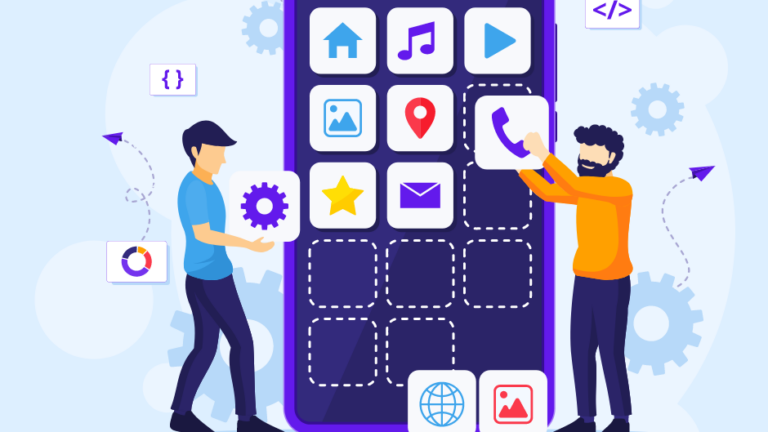Creating a mobile app can be an exciting venture, but turning it into a profitable business requires strategic planning and execution. This article explores various monetization strategies that can help you make your mobile app profitable, ensuring a steady revenue stream and a successful return on investment.
1. Freemium Model
The freemium model is one of the most popular monetization strategies. In this approach, the app is free to download and use, but certain premium features or content are locked behind a paywall. Users can choose to pay for these additional features, enhancing their overall experience.
Advantages:
-
Attracts a large user base quickly.
-
Offers a taste of premium features, enticing users to pay for full access.
Disadvantages:
-
Requires a careful balance between free and premium features to avoid user frustration.
-
Conversion rates from free to paid users can be low.
Example: Many productivity apps, such as Evernote, use the freemium model effectively, offering basic functionality for free while charging for advanced features.
2. In-App Advertising
In-app advertising involves displaying ads within your app. This can be done through various ad formats, including banners, interstitials, videos, and native ads. Revenue is generated based on impressions, clicks, or conversions.
Advantages:
-
Provides a steady revenue stream without charging users directly.
-
Suitable for apps with high user engagement and time spent.
Disadvantages:
-
Ads can disrupt the user experience if not implemented thoughtfully.
-
Requires a large user base to generate significant revenue.
Example: Many free games and social media apps, like Instagram, rely on in-app advertising to monetize their user base.
3. In-App Purchases
In-app purchases (IAPs) allow users to buy virtual goods or services within the app. This can include anything from virtual currency, additional lives in games, to exclusive content and features.
Advantages:
-
Can be highly lucrative if users find value in the virtual goods.
-
Enhances user engagement and retention by offering continuous value.
Disadvantages:
-
Users may feel pressured to spend money to fully enjoy the app.
-
Requires ongoing development of new items or features to keep users interested.
Example: Mobile games like Clash of Clans generate substantial revenue through in-app purchases of virtual currency and other in-game items.
4. Subscription Model
The subscription model involves charging users a recurring fee to access premium content or features. Subscriptions can be weekly, monthly, or yearly, providing a consistent and predictable revenue stream.
Advantages:
-
Ensures a steady flow of income.
-
Encourages long-term user engagement and loyalty.
Disadvantages:
-
Users may be hesitant to commit to recurring payments.
-
Requires regular updates and new content to justify the subscription cost.
Example: Streaming services like Spotify and Netflix successfully use the subscription model, offering unlimited access to their content libraries.
5. Paid Apps
Charging users a one-time fee to download your app is another straightforward monetization strategy. This model works well for apps that offer substantial value upfront without the need for ongoing purchases or subscriptions.
Advantages:
-
Provides immediate revenue.
-
Users perceive paid apps as higher quality and more reliable.
Disadvantages:
-
High upfront cost can deter potential users.
-
Requires significant marketing efforts to justify the price.
Example: Popular paid apps like Minecraft and various productivity tools have found success by offering unique and valuable features worth the initial investment.
6. Sponsorship and Partnerships
Collaborating with brands or other app development companies can open up additional monetization opportunities. This can involve sponsored content, co-branded features, or exclusive partnerships that provide value to both parties.
Advantages:
-
Can lead to substantial revenue and increased exposure.
-
Enhances credibility and trust through reputable partnerships.
Disadvantages:
-
Finding suitable sponsors or partners can be challenging.
-
Requires careful integration to maintain the app’s user experience.
Example: Fitness apps like Strava partner with brands for sponsored challenges and features, benefiting both the app and the sponsoring companies.
7. Crowdfunding and Donations
For unique or niche apps, crowdfunding and donation-based models can be effective. Platforms like Kickstarter or Patreon allow users to financially support app development in exchange for exclusive perks or early access.
Advantages:
-
Builds a community of dedicated supporters.
-
Provides funding without traditional monetization methods.
Disadvantages:
-
Success depends heavily on marketing and community engagement.
-
Revenue can be unpredictable and inconsistent.
Example: Indie game developers often use crowdfunding to bring their creative projects to life, offering backers special rewards and early access.
8. Data Monetization
If your app collects valuable user data, you can monetize this information by selling it to third parties or using it to enhance targeted advertising. Ensure compliance with data protection regulations and maintain user trust by being transparent about data usage.
Advantages:
-
Can generate significant revenue from high-quality data.
-
Enhances targeted advertising efforts.
Disadvantages:
-
Privacy concerns and regulatory compliance are critical.
-
Requires clear communication with users about data practices.
Example: Market research companies often purchase anonymized data from apps to gain insights into consumer behavior.
Conclusion
Choosing the right monetization strategy for your mobile app depends on your target audience, app type, and long-term goals. Many successful apps combine multiple strategies to diversify their revenue streams and maximize profitability. By understanding and implementing these monetization techniques, you can ensure that your app not only attracts users but also generates sustainable income.
For professional assistance in developing and monetizing your app, consider partnering with an experienced app development company. They can provide valuable insights and technical expertise to help you achieve your business objectives.

